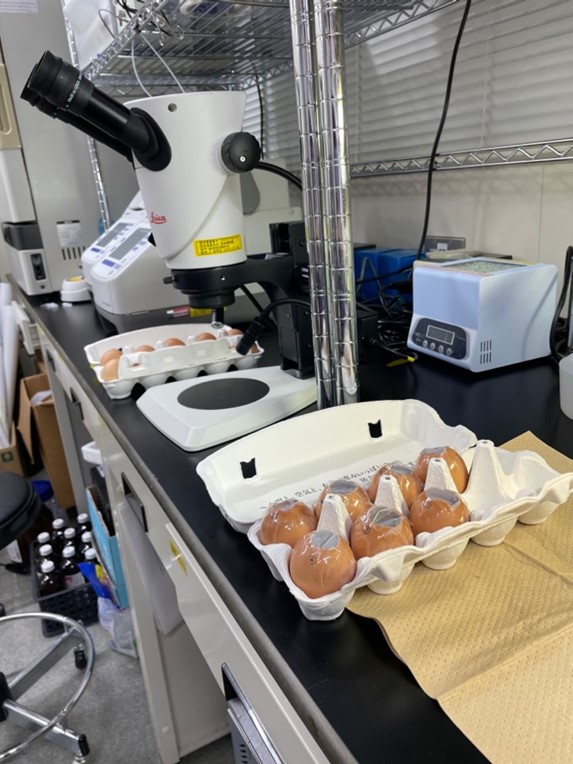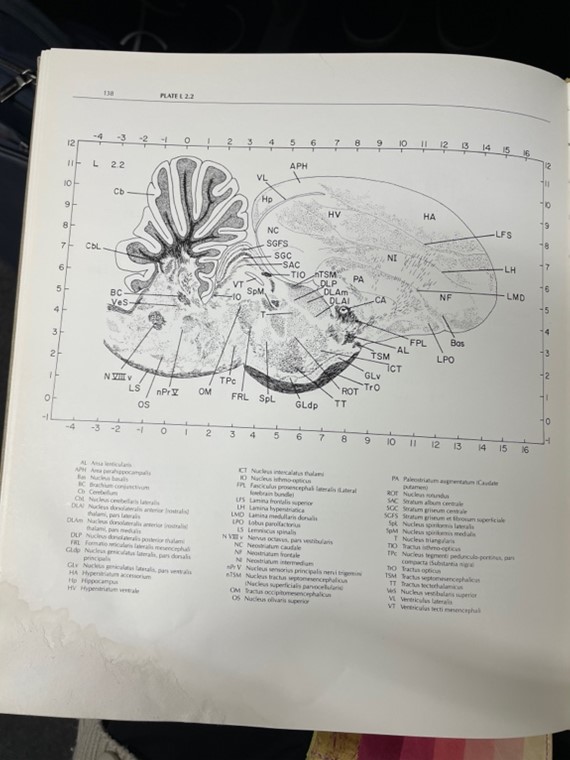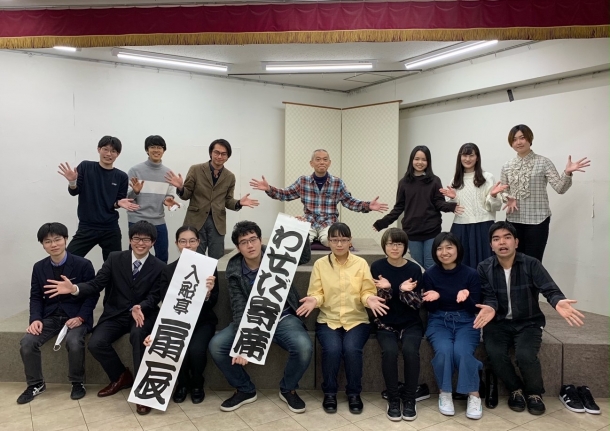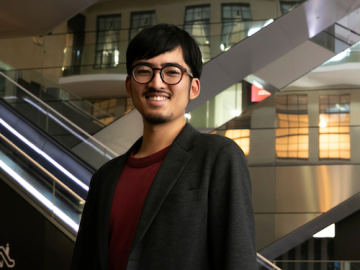Biology × Data Science

Suzuka Katayama, 4th year, School of Education
The ability to interpret data is essential to understanding a paper
Since I was in high school, I have been interested in biology, especially the field of "developmental biology," which studies the process from when a fertilized egg becomes a fully developed individual. I researched universities where I could study biology at their faculties and laboratories, and chose the Department of Science, School of Education, majoring in biology. I am currently a member of a developmental biology laboratory that studies the development of brain nerve cells. I also attend a collaborative laboratory at the Tokyo Metropolitan Institute of Medical Science, where I am currently researching the origins of avian brain development, the topic of my graduation thesis.
In order to advance my research, I am learning about previous research and basic knowledge through papers, but in recent biological research, a method is often used to analyze the detailed genetic state of each individual cell and the resulting data. The data science I have learned so far is of great help in reading and understanding such papers.


Katayama's research in progress.
We are investigating the mechanism by which the complex structures shown in the schematic diagram on the right are formed in the chicken brain.
Exploring how bird brains evolved
The importance of combining data science with other fields of expertise
I started taking subjects in the Data Science Education Program in my third year. I took the courses to learn the basics, because I knew I would definitely need to use data when I began my graduation research in my fourth year.
In my third year, I took "Introduction to Data Science α/β", and in my fourth year, "Introduction to Data Science δ/γ" and "Data Science Practice". This was a systematic way of learning how to think about data science. It wasn't my first time learning data science; I had taken a general statistics class useful for biology in my first year of undergraduate studies. However, I felt that the pace of the class was a little too fast because I didn't know anything at the time. So I took "Introduction to Data Science" again in the data science education program. It was very easy to understand, and by taking the classes in order from α to γ, the explanations were thorough and built up from the basics, which I felt deepened my understanding of the overall picture.
In the "Data Science Practice" class, we were given one major assignment as the final assignment, and we had to think about and analyze it on our own, based on the analysis process explained in the previous classes. It was difficult to organize the analytical knowledge on my own and actually use it, but after this class, I felt that I had moved from the stage of "gaining knowledge" to the stage of "utilizing it." In order to become more proficient at using it, I would like to continue taking data science classes and improve my ability to analyze on my own.
The biggest thing I gained from the classes in the data science education program was the idea that "data science must be combined with one's field of expertise." I haven't yet decided whether I will become a researcher or find employment in a company, but I feel that no matter what field I go into, it will be important to have the perspective of treating data science as a "tool."
Also, while data science is thought to require mathematical knowledge, I felt that data science classes did not place much emphasis on mathematical elements. Rather, I think they place emphasis on the flow of thought, such as "what is the purpose and what process of analysis should be taken" and "how should the results obtained be used?" In fact, I am also a science student, but I came to biology because I am not good at math, so I am not very good at math (laughs). Still, I was able to learn without being bound by whether I am a humanities or science student, or whether I am good or bad at math.

Katayama belongs to the Waseda University Rakugo Study Group.
The appeal of on-demand classes is that they allow students to learn efficiently, even amid their busy research and student life.
Critical thinking is useful anywhere
In my Department of Science, Biology major, we always have experiments one or two days a week, and we have to submit reports by the following week, revise the feedback, and then submit them... it's a college life where you're constantly being swamped with assignments. To be honest, it may not be the college life that many high school students want (laughs).
However, I was proactive in taking classes that looked fun, even from outside my faculty. In particular, I knew that there were courses offered by the Global Education Center that students from all faculties could take from their first and second years, and when I saw a pamphlet while registering for courses, I took Arabic and Thai classes that looked interesting. Although they were not directly related to my research, I think it is attractive to be able to casually take classes that interest me.
Through data science classes, I have acquired knowledge of data science and how to write programs, but the biggest thing I learned was how to think about why we use data, what we want to know from data, and how to analyze it to find out. Whether or not we use data science knowledge depends on each research and future path, but the critical thinking we gain there is necessary in any field. I would recommend to high school students that studying in the current Waseda University system, where you can learn data science to deepen and utilize your expertise, will surely be useful in the future no matter what path you choose.







